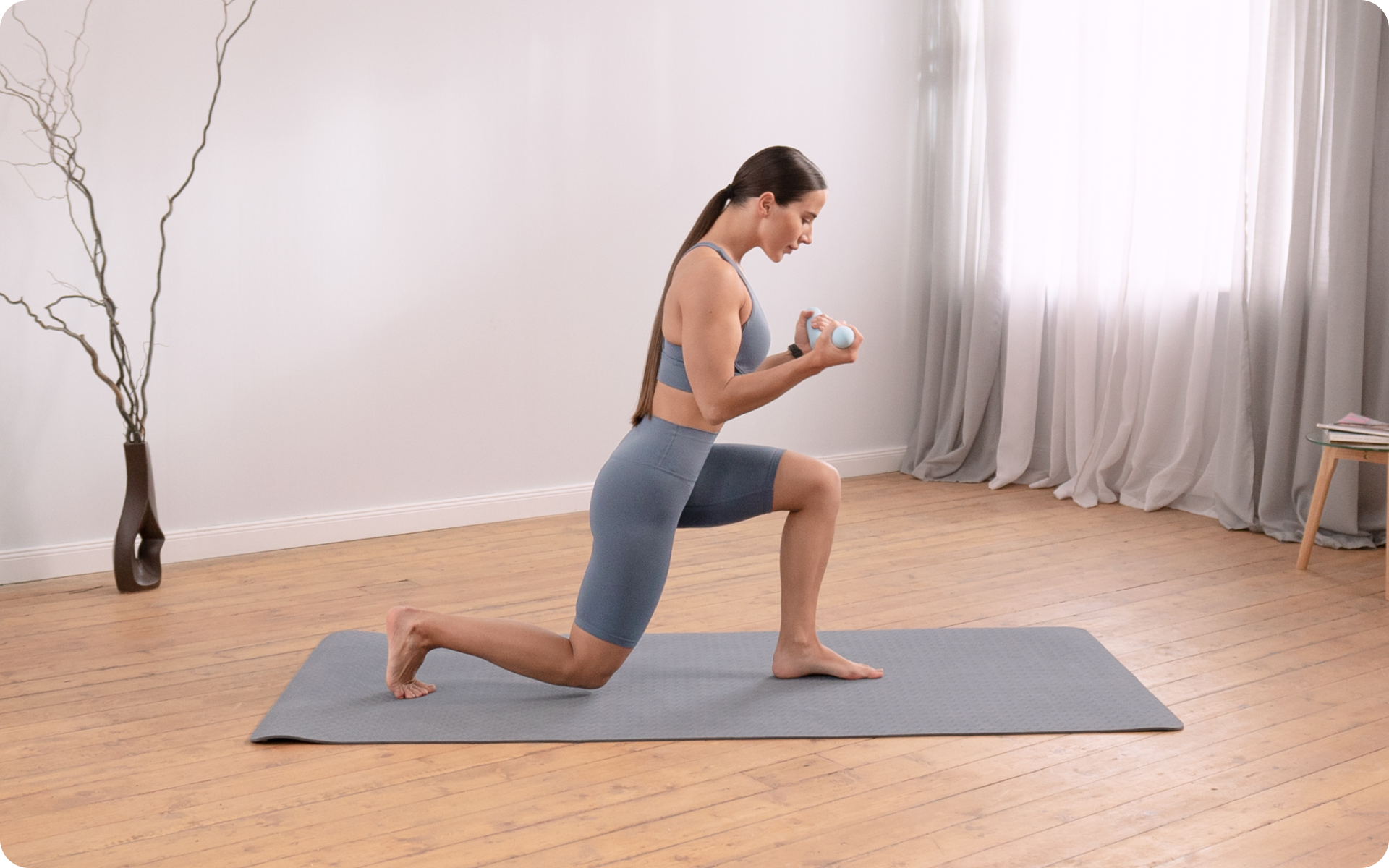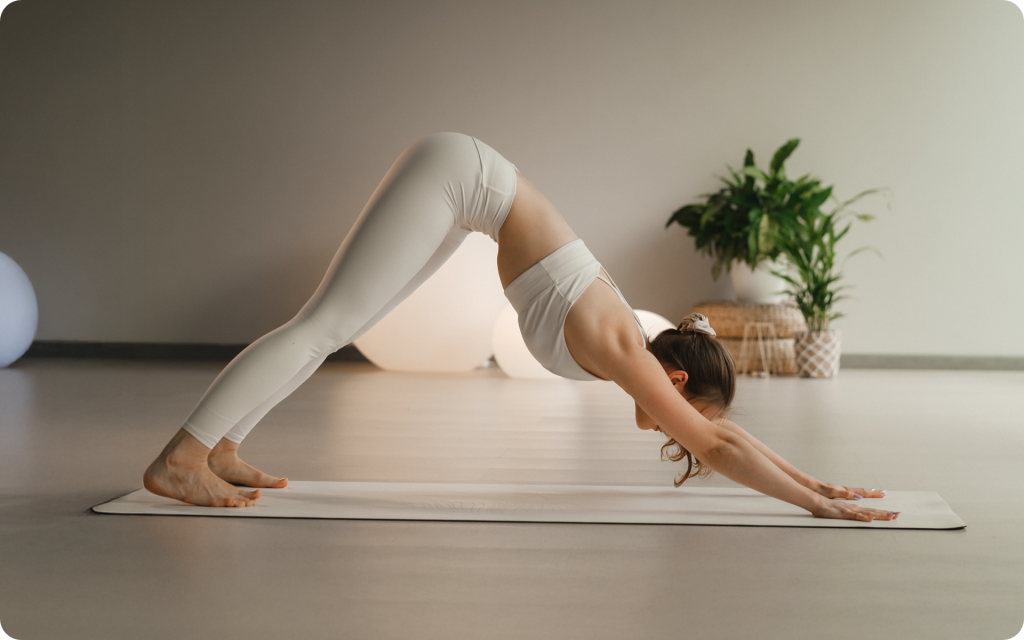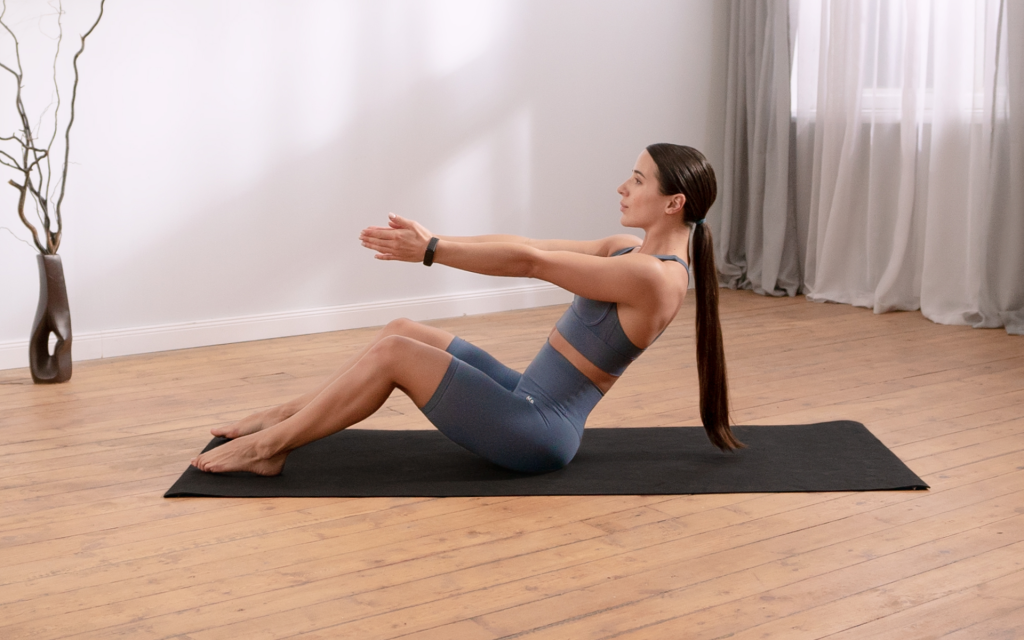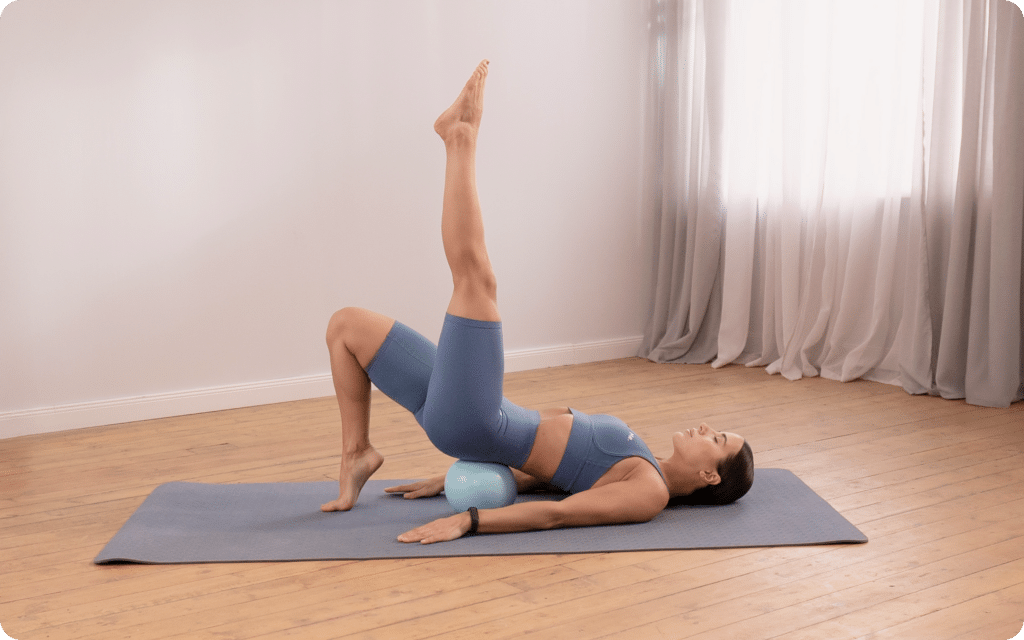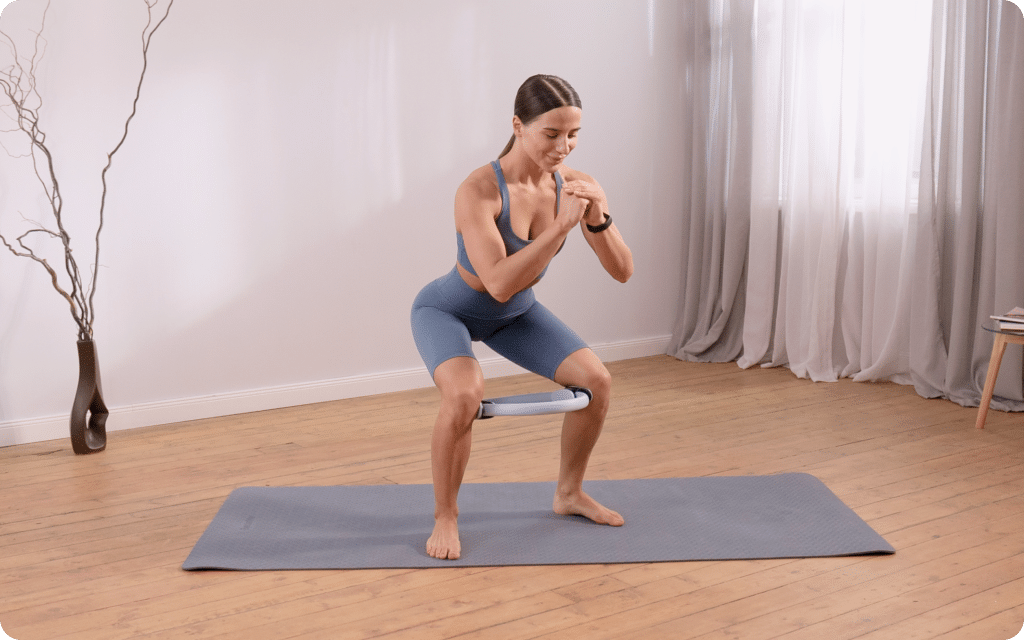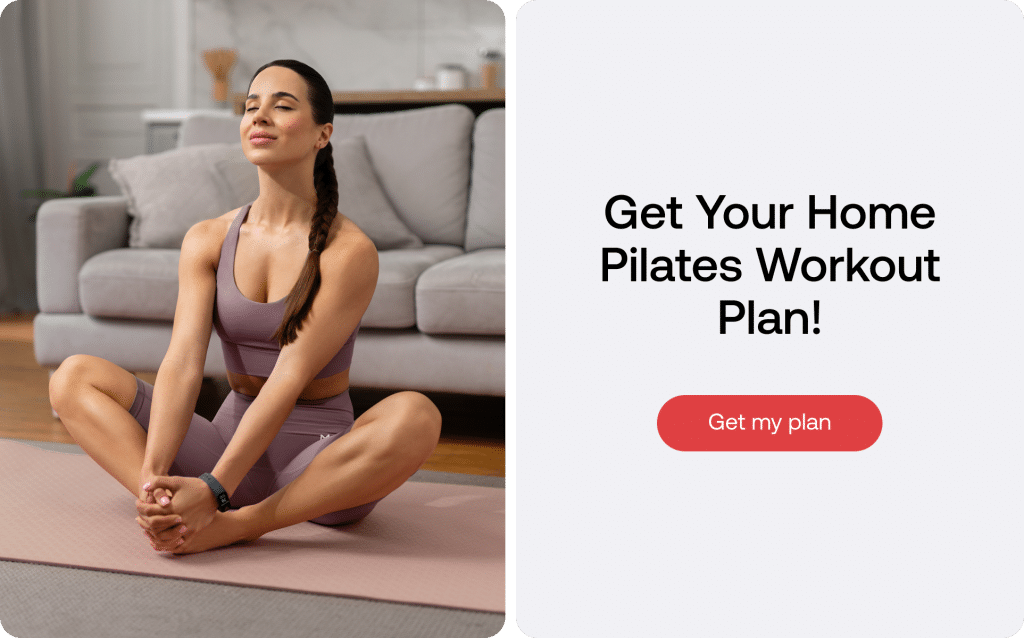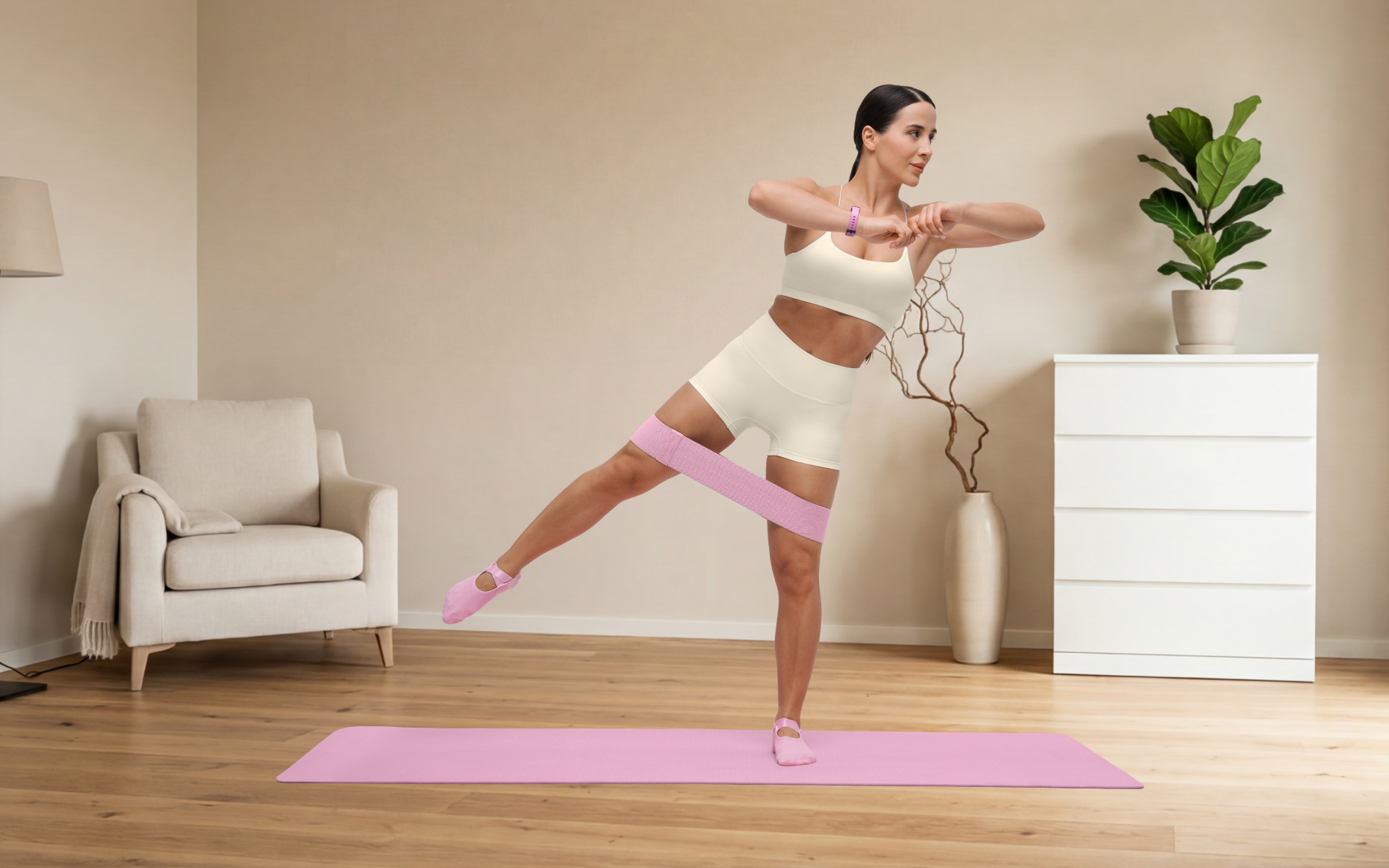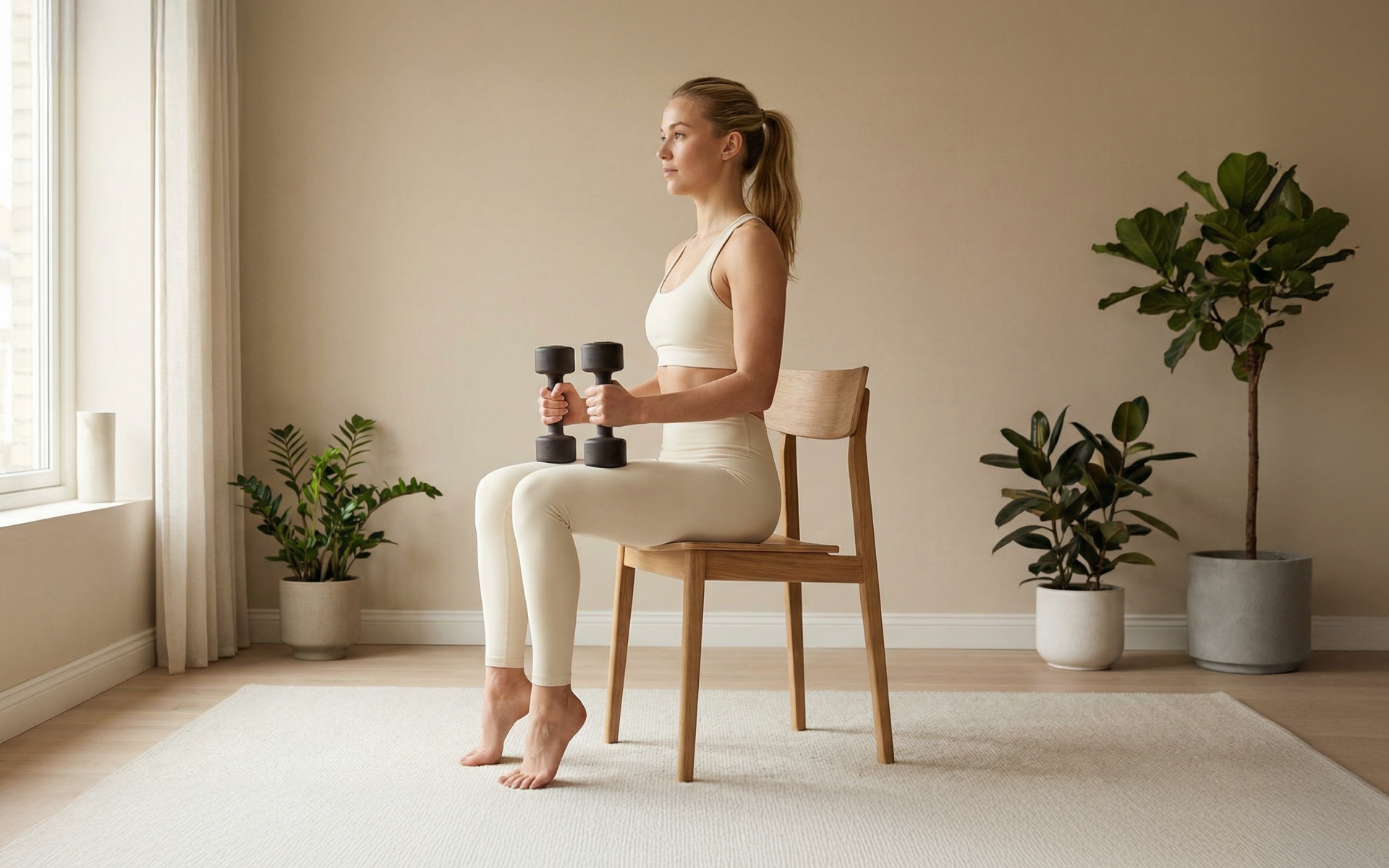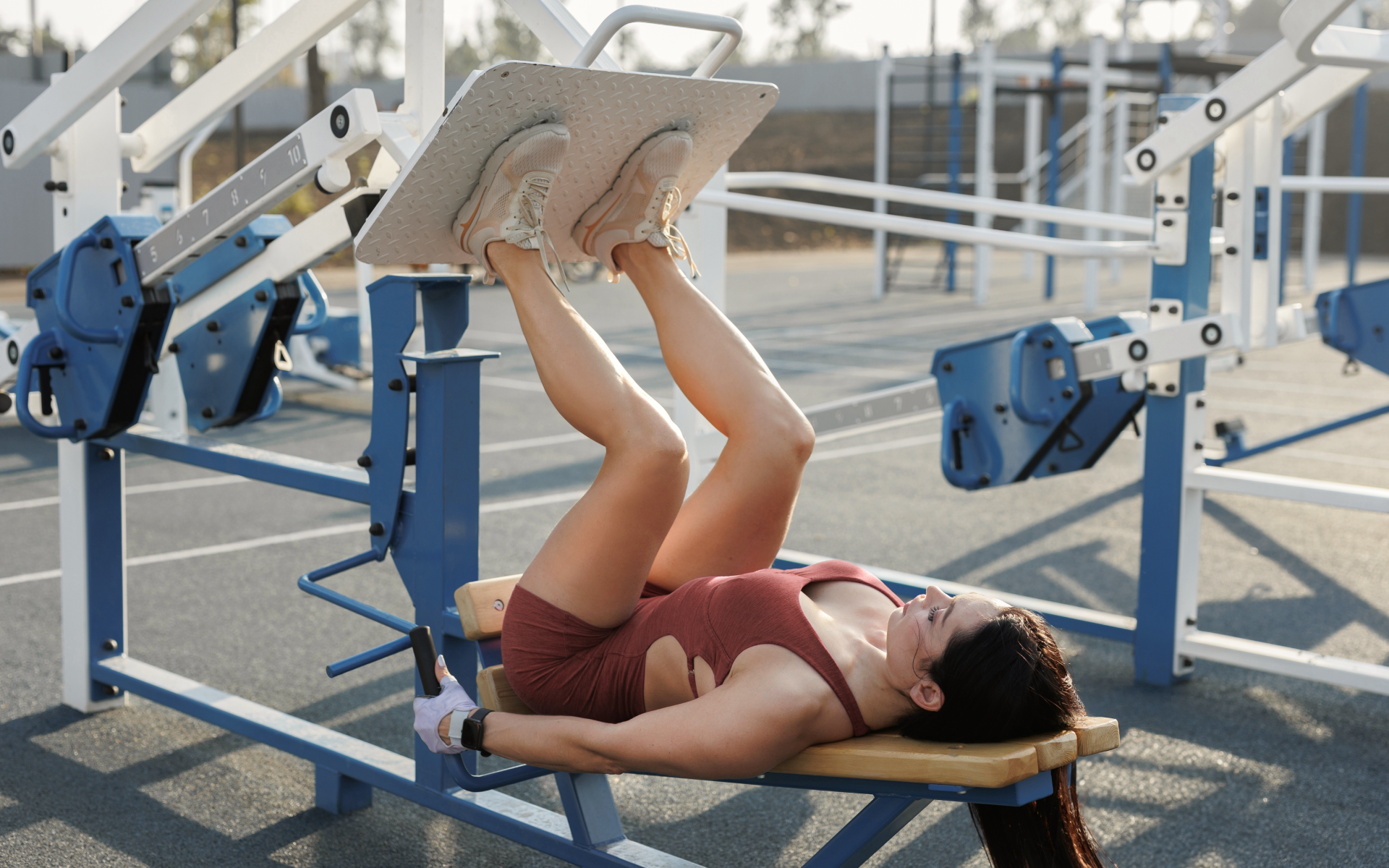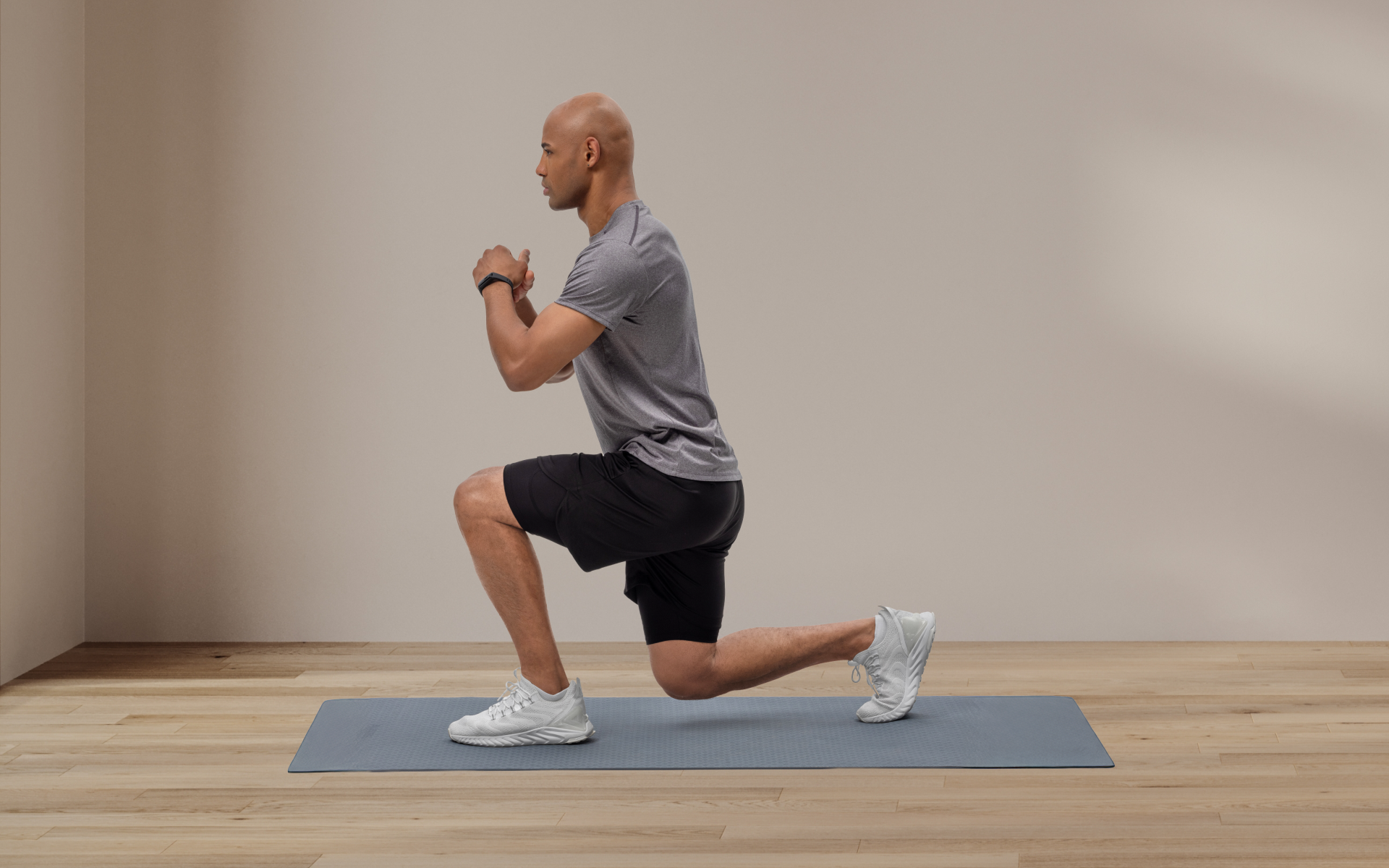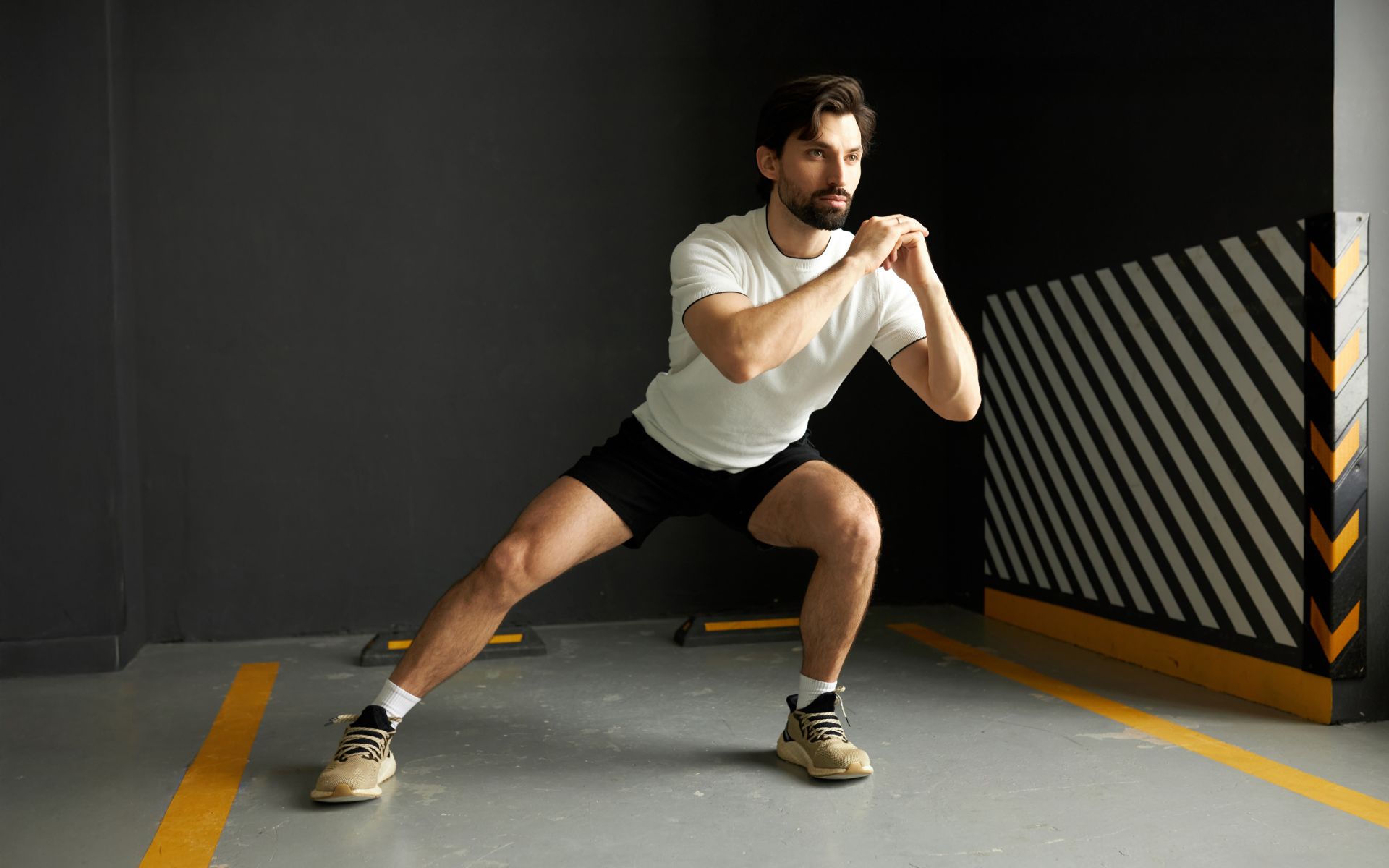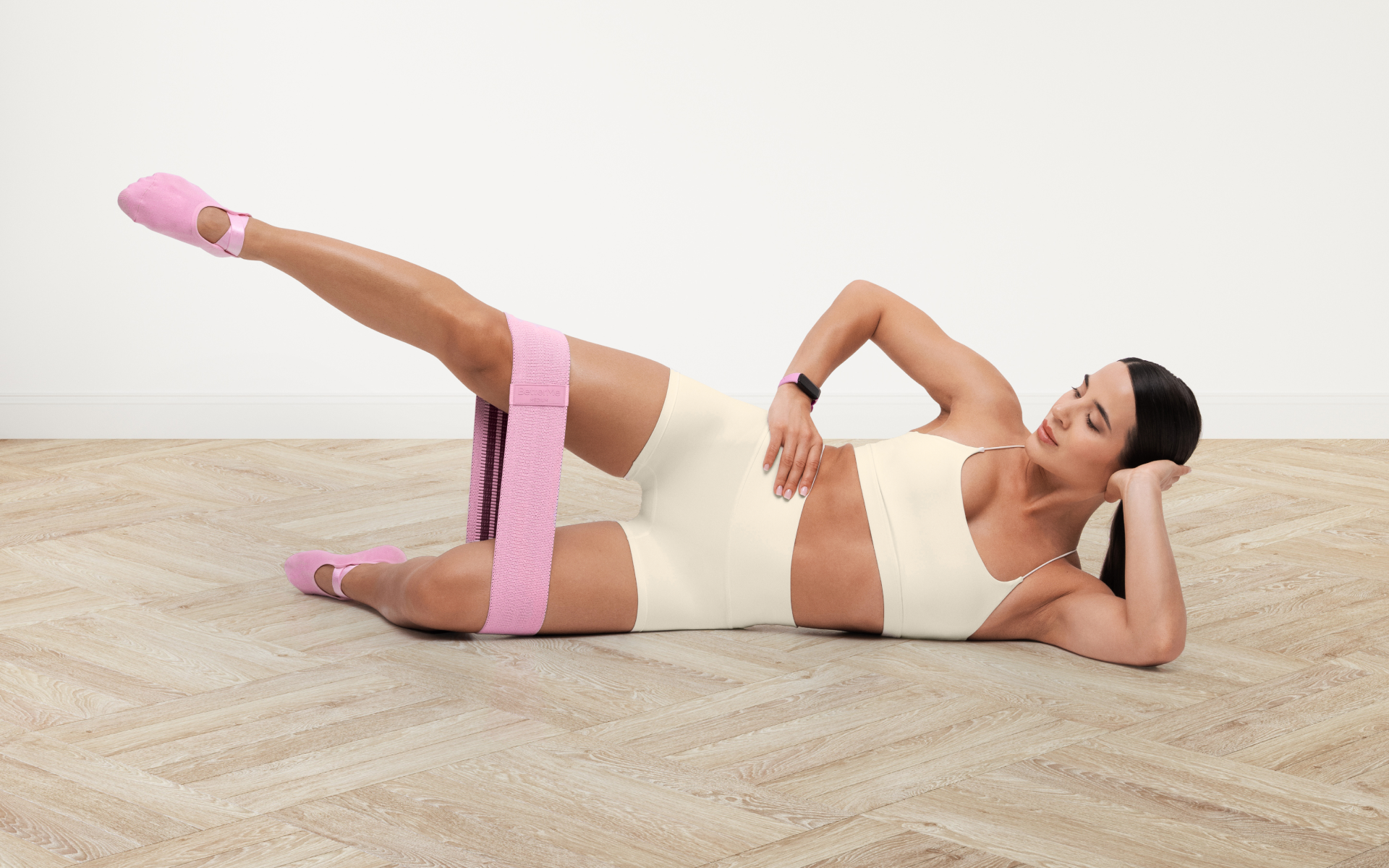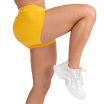Most people underestimate the importance of leg workouts because their primary goal is to lose weight, regardless of the exercise plan.
If you’re a beginner planning to start working out to shed those extra pounds, you should know there’s no concept of targeted weight loss in the fitness world. Achieving your goals requires a comprehensive exercise routine and a healthy lifestyle.
Leg workouts are a crucial part of any workout routine.
You can enhance even the simplest daily practices, such as walking, with leg exercises.
Maintaining strong leg muscles is essential for your overall fitness routine.
However, it’s okay to wonder where to begin.
After all, gyms and intense training sessions aren’t for everyone.
At-home leg workouts with no gear can be your savior in this regard.
Learning home leg workouts and practicing consistently can help you progress in your fitness journey.
Our guide about leg workouts at home can help you become a better version of yourself, as you’ll feel stronger and more positive about your physical appearance.
What Is An Efficient At-Home Leg Workout With No Gear?
Some days, you may run short on time or don’t have the basic equipment required to do leg exercises.
What if we told you that it’s possible to squeeze a pretty good leg session, regardless?
The best at-home leg workout doesn’t need machines or weights, just your body and some motivation.
Best At-Home Leg Workout (No Equipment Needed)
Here are 5 leg exercises at-home to build muscle:
- Bodyweight Squats
A classic move that targets your quads, hamstrings, and glutes (1).
How to: Stand with feet shoulder-width apart and lower your hips as if sitting in a chair.
Keep your chest up and knees behind your toes.
Do: 3 sets of 15 reps.
- Lunges
Help strengthen each leg individually and improve balance (2).
How to: Step forward with one leg and lower your body until both knees form 90-degree angles. Push back to start and switch legs.
Do: 3 sets of 10 reps per leg.
- Glute Bridges
This move targets your glutes and hamstrings (3).
How to: Lie on your back with knees bent and feet flat. Lift your hips toward the ceiling, squeeze your glutes, and lower slowly.
Do: 3 sets of 12–15 reps.
When it comes to weight loss, progress is made by inches, not miles, so it’s much harder to track and a lot easier to give up. The BetterMe: Health Coaching app is your personal trainer, nutritionist, and support system all in one. Start using our app to stay on track and hold yourself accountable!
- Wall Sits
A killer static move for endurance and strength (4).
How to: Slide down a wall until your knees are at a 90-degree angle, as if sitting in a chair. Hold for 30–60 seconds.
Repeat 3 times.
- Calf Raises
Don’t forget your calves. They support your lower body strength (5).
How to: Stand upright, lift your heels off the ground, pause at the top, and lower slowly.
Do: 3 sets of 20 reps.
You don’t need fancy gear to see real results.
Just stay consistent, focus on your form, and gradually increase the number of reps over time.
Try these leg exercises at home to build muscle, and you’ll start to feel the difference in just a few weeks.
Read more: Calf Muscle Exercises at Home and the Gym: Strengthen and Define Your Calves
Can I Build Leg Muscle Without Weights?
You can build leg muscle without weights by following a couple of methods.
The most important aspect of these methods is that you progressively overload your workouts.
A few specific things to focus on when developing your workout plan would include:
- Unilateral Moves
These exercises use one leg at a time.
They make you depend on the strength of just that leg, so they usually feel more challenging than exercises using both legs together. Adding moves like lunges, single-leg glute bridges, and single-leg calf raises to your home leg workouts can make them more challenging and build strength faster (6).
- Explosive Movements
You can make bodyweight leg exercises more challenging by incorporating quick, powerful movements.
Exercises like jump squats and jumping lunges not only strengthen your legs but also help build explosive power (7). And they also provide a cardio boost.
- Bodyweight Exercises
When trying leg exercises at home for beginners, a mix of different movements can be helpful. For example, hinge exercises like glute bridges and good mornings primarily target the back of your legs, specifically your hamstrings and glutes.
On the other hand, squat moves like squats and lunges focus more on the front, particularly the quads. Including both exercises allows you to work all your leg muscles and provides a more balanced workout.
Is Leg Day At Home Effective?
Leg workouts engage a major muscle group in our bodies. When performed regularly, home leg workouts are effective.
A few benefits that are likely to come your way include:
Hormone Stimulation
They help your body release essential hormones. When you exercise your legs, your body produces hormones such as cortisol, testosterone, and human growth hormone (HGH) (8).
- Cortisol helps you manage stress and burn fat.
- Testosterone supports muscle repair and growth.
- HGH also helps build muscle, boosts your immune system, and improves fat burning.
That’s why leg workouts at home for women can do more than just tone their legs.
They contribute to fitness and help prevent all hormonal disorders (8).
Prevent Injuries
Leg workouts are essential for protecting your body from injuries.
They can build strength in your lower body, eventually improving your balance.
Strong leg muscles act like natural shock absorbers.
They can protect your knees and ankles from too much pressure during running, jumping, or walking. They also reduce the risk of injury from strains or sprains.
Exercises like squats and deadlifts are beneficial for strengthening your hips (It is a common trouble spot for runners). Studies have also found that lower body strength training can boost endurance and power in athletes (9).
Core Engagement
When you incorporate single-leg moves into your routine, you can experience improved stability and a stronger core.
A study published in Sage Journals found that using your core muscles properly during deep squats can help activate your leg muscles more (10). It also enables you to stay stable and lowers the risk of injury.
Research shows that engaging your core during squats can also improve the movement of your legs, demonstrating that squats may be a beneficial option for recovery and rehabilitation. When you feel bored, you can even try leg workouts at home with dumbbells. Remember to start with your weaker side to build balance on both legs.
The discussion boils down to the point that at-home leg workouts can be as effective as an intense gym session. With stronger legs, you can take up more challenging workouts and accelerate towards your fitness goals.
What Are The Best Leg Exercises At Home?
The best leg exercises to do at home are simple and don’t require fancy equipment.
Some of the best bodyweight leg workouts you can practice are:
Bodyweight Squats
- Stand with feet shoulder-width apart.
- Lower your hips like you’re sitting in a chair.
- Keep your chest up and knees behind your toes.
- Push through heels to return to standing.
Lunges
- Step forward with one leg.
- Lower your body until both knees are at 90 degrees.
- Push back to the starting position.
- Repeat on the other leg.
Glute Bridges
- Lie on your back, knees bent, feet flat.
- Lift your hips while squeezing your glutes.
- Hold for a second, then lower slowly.
Wall Sits
- Stand with your back against a wall.
- Slide down until your thighs are parallel to the floor.
- Hold the position for 30-60 seconds.
Calf Raises
- Stand tall, feet hip-width apart.
- Raise your heels to stand on your toes.
- Pause, then slowly lower your heels back to the ground.
Step-Ups (Use stairs or a sturdy chair)
- Step up with one foot onto the surface.
- Press through the heel to lift your body.
- Step down and repeat on the other leg.
Jump Squats
- Do a regular squat.
- Jump up explosively.
- Land softly and go straight into the next squat.
These exercises are suitable for both beginner and expert-level workouts.
There are options to overload progressively when you can easily do the basic practice.
Do them with good form, stay consistent, and feel your strength grow!
Read more: No-Squat Leg Workout: Build Strength Without Knee Pain
How To Make An At-Home Leg Workout Plan?
Creating a leg-focused plan at home is easier than you think.
You need to do some research and cover all the basic rules when creating a plan.
For example, search for leg workouts at home for guys and a personalized plan from authentic fitness platforms.
The following are some steps that could help you in the journey:
Choose 4-6 Leg Exercises
Pick a mix of moves that target different leg muscles:
- Quads & Glutes: Squats, step-ups
- Hamstrings and Glutes: Glute bridges, good mornings
- Calves: Calf raises
- Balance and Core: Lunges, single-leg deadlifts
You can use dumbbells for added resistance if you want to increase the difficulty.
BetterMe: Health Coaching app helps you achieve your body goals with ease and efficiency by helping to choose proper meal plans and effective workouts. Start using our app and you will see good results in a short time.
Plan Your Sets And Reps
- For strength: 3-4 sets of 8-10 reps
- For toning/endurance: 2–3 sets of 12–15 reps
- For fat burn and cardio: Add jump squats or lunge jumps and minimize the rest periods between exercises.
Schedule Your Workouts
Go for 2-3 leg days per week with rest or upper body/core workouts in between.
Example weekly plan:
- Monday: Leg workout
- Wednesday: Upper body
- Friday: Leg workout
- Sunday: Full body or active rest (like walking)
Warm Up And Cool Down
Start with 5 minutes of light cardio (marching in place, jumping jacks) before any strength exercises.
End your workout with static stretches for your hamstrings, quads, and calves.
Progress Weekly
Add reps, sets, or time each week. Or try more challenging variations (like jump lunges or single-leg squats) to keep progressing your muscle strength.
An at-home leg workout with weights can be your next option when you get bored or feel like you’re a pro at bodyweight workouts.
With a fun and feisty plan, your leg workouts at home with weights can be just as powerful as any gym session!
Is 20 Minutes Enough For Leg Day?
Starting off with as little as 20 minutes is a good idea for beginners because you will be trying out these exercises for the first time. You will want to ensure that you are using the proper form for each movement. Since you are new to exercise, it is best to perfect the form and progress at your own pace.
The body will take a little bit to get used to these new strength movements.
Technically speaking, a 20-minute routine can be scaled for someone who is just a beginner and even those on an advanced fitness journey.
A well-planned 20-minute workout with exercises like squats, lunges, and leg presses can give your leg muscles a good challenge. But if you want to build a lot of muscle or get stronger, you may need to work out for a bit longer.
Ultimately, consistency is going to lead to results. Find an exercise frequency that works for you and try your best to stick with it for an extended period of time.
Start with 3 sets of 10-15 squats. You can gradually increase the reps as you build strength. You should prioritize consistency over excessive volume, which can cause strain. It’s okay to skip leg workouts occasionally, but regular leg exercises are essential for building strength, improving balance, and preventing injury. Skipping leg day too often can lead to imbalances. Yes, wall sits strengthen your quads, glutes, and calves. Holding the position for longer periods builds endurance and muscle stability, especially in the lower body. For many, yes. Leg day challenges large muscle groups and requires intense, tiring effort. However, it varies depending on individual preferences and goals.Frequently Asked Questions
How many squats per day?
Is it OK not to do leg day?
Do wall sits build muscle?
Is leg day the hardest day?
The Bottom Line
So, here you have it. When executed effectively, at-home leg workouts can be highly beneficial.
Our guide covered all the basic points required to get started.
You can choose specific days to do the leg workouts or incorporate the essential exercises into your regular workout sessions.
Remember, there are no strict dos and don’ts of at-home leg workouts. It takes plenty of trial and error to find a plan that works for you.
And when you find one, stick by it!
DISCLAIMER:
This article is intended for general informational purposes only and does not serve to address individual circumstances. It is not a substitute for professional advice or help and should not be relied on for making any kind of decision-making. Any action taken as a direct or indirect result of the information in this article is entirely at your own risk and is your sole responsibility.
BetterMe, its content staff, and its medical advisors accept no responsibility for inaccuracies, errors, misstatements, inconsistencies, or omissions and specifically disclaim any liability, loss or risk, personal, professional or otherwise, which may be incurred as a consequence, directly or indirectly, of the use and/or application of any content.
You should always seek the advice of your physician or other qualified health provider with any questions you may have regarding a medical condition or your specific situation. Never disregard professional medical advice or delay seeking it because of BetterMe content. If you suspect or think you may have a medical emergency, call your doctor.
SOURCES:
- A Biomechanical Review of the Squat Exercise: Implications for Clinical Practice (2024, pmc.ncbi.nlm.nih.gov)
- Evaluating Performance of the Lunge Exercise with Multiple and Individual Inertial Measurement Units (2016, researchgate.net)
- Electromyographic Analysis of Gluteus Maximus and Hamstring Activity During the Supine Resisted Hip Extension Exercise Versus Supine Unilateral Bridge to Neutral (2024, brookbushinstitute.com)
- Static isometric exercise, such as wall sits and planks, best for lowering blood pressure (2023, canterbury.ac.uk)
- The Effect of Calf Raise to Leg Muscle Power for Beginner of Athletic Athlete in Pekanbaru (2020, researchgate.net)
- The Assessment, Management and Prevention of Calf Muscle Strain Injuries: A Qualitative Study of the Practices and Perspectives of 20 Expert Sports Clinicians (2022, pmc.ncbi.nlm.nih.gov)
- Power Versus Strength-Power Jump Squat Training: Influence on the Load-Power Relationship (2007, researchgate.net)
- Hormonal responses and adaptations to resistance exercise and training (2005, pubmed.ncbi.nlm.nih.gov)
- Why does strength training improve endurance performance? (2020, researchgate.net)
- Understanding the biomechanical influence of core contribution in squat: A systematic review (2025, journals.sagepub.com)
